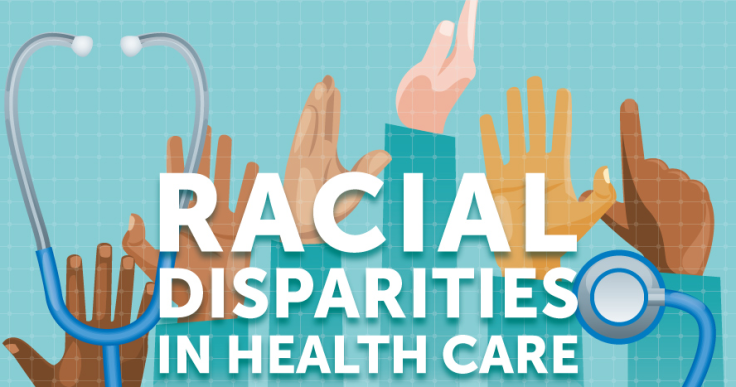Racial Disparity In Health Care: High Costs Of Insurance, Lack Of Access Keep Minorities From Getting Help They Need

We know that all people are created equal, but we're not all treated that way — racial disparities still exist in everything from the justice system to the workforce, and even to our film awards. It shouldn’t come as much of a surprise then to find out our health care system faces many of the same problems.
BestMedicalDegrees.com put together an infographic to explain these disparities not only in preventable disease rates but also in health care coverage. For example, African Americans have a 40 percent higher risk of high blood pressure than whites, which in turn puts them at risk for heart disease and stroke, among other conditions. American Indians, meanwhile, are 2.3 times more likely to get diabetes.
According to the infographic, part of the reason these disparities exist is because minority groups often have difficulty gaining access to hospitals or medical specialists. Income plays a large part in this issue, as blacks and Hispanics are twice as likely to live in poverty than whites, meaning they also have more trouble getting to a doctor. In fact, more than half of all minorities report not even having one.
The cost of insurance coverage for a family comes out to about $16,834 a year. Minority families are often unable to afford this — though Obamacare has helped — especially considering that insurance premiums have jumped 69 percent over the past decade. Moreover, fewer companies offer paid health insurance plans. This lack of coverage contributes to more people going to work sick.
There are several ways to close the racial disparity gap in health care, including providing more affordable care, promoting a diverse workforce in health care, building clinics in low-income areas, and educating minorities about their risks and predisposition for diseases. Research shows that if we can close this gap, some minorities, such as blacks, may end up having better health outcomes than whites.
View the infographic to see in-depth how these racial disparities pan out in the health care system.

Source: Best Medical Degrees.com
Published by Medicaldaily.com



























